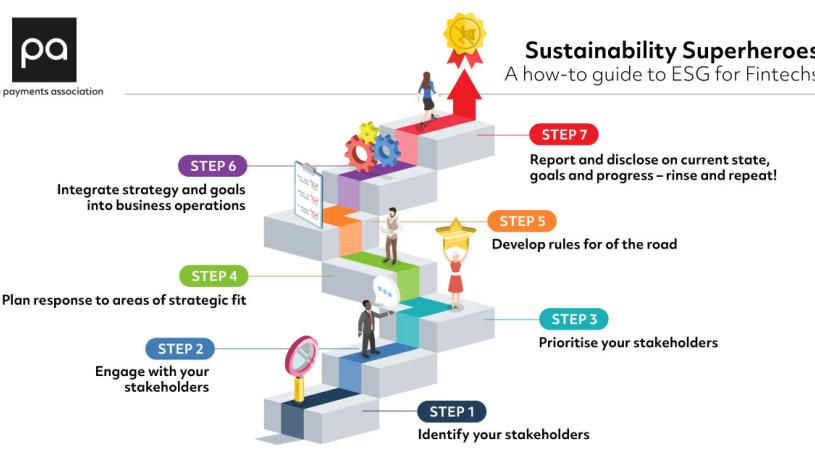FinTech companies are becoming ESG superheroes
For decades – centuries even – businesses had one goal: maximise profits for shareholders. Whether these shareholders were a single capitalist or thousands of shareholders, the goal was always to grow as large as possible as quickly as possible. Although laws covering anything from child labour to emissions curtailed companies’ ability to be truly amoral, history is filled with examples of companies circumventing those laws.
Today the game has changed. Companies are integrating Environmental, Social and Governance (ESG) into their companies at a deep level, often launching the company with a social goal that is just as important as profit. To measure and guide this change, The Payments Association commissioned a whitepaper into the ways that FinTech companies are integrating social and sustainability goals into their long-term planning and day to day operations.
FinTech is an industry with great potential to uplift people and an equally large potential to harm them. Dealing directly with a customer’s finances and data can allow them to revolutionise people’s lives or diminish the finances that they rely on, and their potential to do good or ill doesn’t stop there. As the report outlines, a company can have a wide range of stakeholders, both internal (employees, investors) and external (customers, suppliers, and the community at large.) Each of these might have sub-sets with opposing goals – management might want to maximise productivity by putting in extra hours but lower-level workers will want a better balance of their work and life, for example. Identifying these shareholders is vital to an ESG project, and understanding their needs is the first step to aligning your company in order to reach your goals.Progress is already being madeTo give us a view of the progress being made in the FinTech industry, we asked our members about their current ESG progress in terms of data privacy, social justice, sustainability and governance, although we acknowledge that there is far more to running an ethical company than we could possibly cover in a short survey.
The results were extremely encouraging:
- Over 90% of companies measure progress towards gender equity
- 80% consider the social justice impacts of their products and services
- 60% seek to reduce waste from their supply chain
- 60% have identified their ESG stakeholders and prioritised them
- 60% communicate their top ESG priorities

